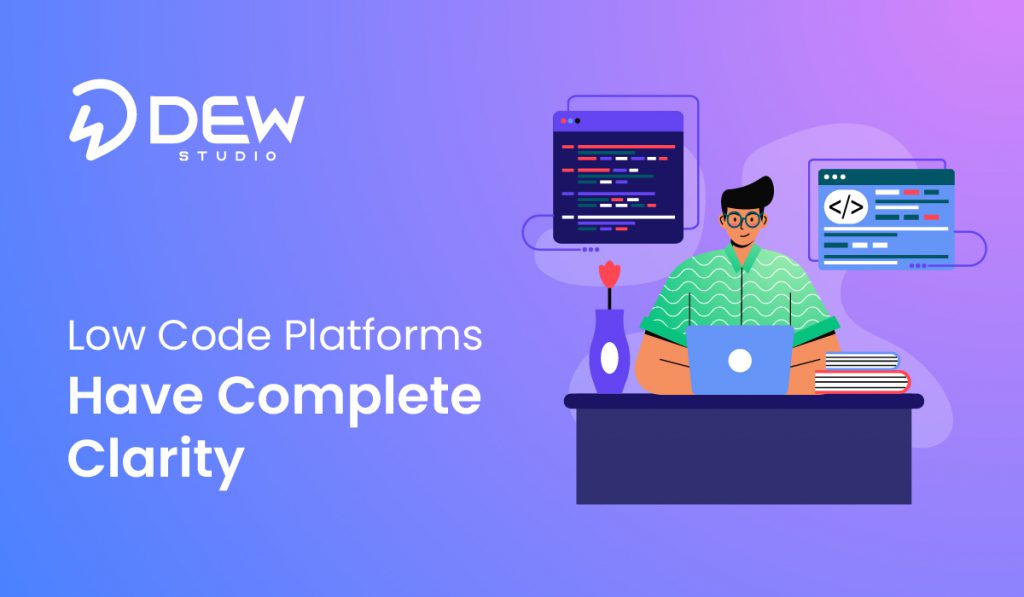
Have you also questioned the scalability feature of the Low Code Platform?
If yes, then this is the blog for you to read and decide for your business. There has always been a dilemma about the scalability feature of low code. And primarily on the infrastructure of the enterprises, if it will help achieve potential growth.
Even, we would suggest not to choose this technologically advanced solution if the way of making a choice will be a random pick. Thus, to leverage the potential of these scalable low code solution it is necessary to evaluate and without being skeptical choose right for your enterprise.
47% of organizations question the scalability of applications created by Low Code platform.
source credit, kissflow
Why Low Code Scalability Functionality Questioned?
Users prefer applications based on their experience with it or the app performance. With time, new features and fucntionalties are integrated to keep up with the market demand. This is called scalling of apps and this also impacts the performance by increasing the load.
In addition to this, there are a few low code solutions that allow citizen developers to work on application development. This makes many large enterprises question on low code’s capability to develop the app for big businesses rather than SMEs.
However, like any other application or software development tool, the low code let any developer(citizen to expert) leverage the platform capability. You can understand more about features and functionality integrated into these low code tools visiting the website platform page.
Now, understand more about the low code market. They are broadly categorized into two parts.
For Business Developers: these are for modest scaling and offer simple tools.
For Expert Developers, these are for high scaling and offer advanced tools rich in features and functionality.
Those both define different levels of scaling therefore, while choosing the right platform providers for the same, it is necessary to read about them in detail. A few of the reputed and trusted low code platforms provide complete demos and guides to understand and choose from. Ahead, some of the important recommendations that will help in the correct evaluation of the scalability of low code tools are mentioned. And how DEWStudio helps overcome the challenge of making the platform ready not only for medium-scale enterprises but also for large enterprises.
Evaluation of Low Code Scalability
Scalability is classified into two types broadly:
Runtime: As the name suggests, this low-code tool allows an increase in capacity even when the application is deployed. Therefore, it offers an excellent user experience irrespective of user number and intensive operations.
Platform: It is for managing and building many substantial large applications, all running simultaneously.
Runtime Scalability:
The evaluation of low code platforms runtime scalability is a critical measure for enterprise class applications. They require high performance, availability, and scalability. According to Forrester and Gartner, these aforementioned features distinguish low code platforms for professional developers from those for business users.
Containers and microservices are used to meet extensive customer requirements for both vertical and horizontal scalability. The applications run independently, which allows deployment and scaling across various environments such as Azure, multi-cloud, hybrid, or on-premises infrastructures. This flexibility supports scaling from pilot projects to large-scale, internet-wide deployments.
The runtime scalability allows cloud-native development. It is designed for runtime applications with auto-scaling. It also features a serverless database engine for seamless scaling and zero maintenance downtime, eliminating the need for deep technical knowledge and extensive resources that are typically required for cloud-native development.
Platform Scalability:
Low Code platforms boost productivity and agility, enabling rapid app launches and swift updates based on feedback or market changes. However, scaling development poses challenges, such as managing concurrent releases, multiple environments, team dependencies, and merging issues.
DEWStudio addresses these by promoting high performance with multiple daily deployments, under one-hour lead time for changes and service restoration, and minimal change failures. Key capabilities support these goals, ensuring efficient, scalable development and delivery.
DEWStudio: The Enterprise-Ready Low-Code Platform
The myth that low code isn’t enterprise-ready is outdated. While some tools might be fit for departmental apps, high-performance platforms like DEWStudio break these limits. It empowers you to build anything your business requires, from simple internal applications to complex, customer-facing mobile and web apps and even critical core systems.
With DEWStudio, you can create robust, scalable, and high-performance applications that are secure, maintainable, and reliable. Its platform supports rapid development and deployment, enabling businesses to adapt quickly to market changes and user feedback. DEWStudio’s comprehensive toolset and enterprise-grade features ensure that you can deliver top-notch applications without sacrificing quality or security.
To discover how DEWStudio can help you build secure, scalable, and maintainable enterprise architectures, explore our DEWStudio platform page. Embrace the future of development with DEWStudio and transform your business with ease.
FAQs
Are low-code platforms secure?
Yes, reputable low-code platforms implement robust security measures to protect applications. They include features like role-based access control, data encryption, and regular security updates. Platforms like DEWStudio ensure compliance with industry standards and best practices, providing a secure environment for application development and deployment.
How does a low-code platform ensure scalability?
High-performance low code platforms, like DEWStudio, are designed with scalability in mind. They support vertical and horizontal scaling, allowing applications to handle increased loads by adding resources or distributing workloads across multiple servers. These platforms often use modern cloud technologies and microservices to ensure applications can grow seamlessly with business needs.
Can low-code platforms integrate with existing systems? Yes, low-code platforms are designed to integrate seamlessly with existing systems and databases. They provide connectors, APIs, and integration tools that allow applications to communicate with other software and services, ensuring that new apps can work within the existing IT infrastructure without disruptions.


